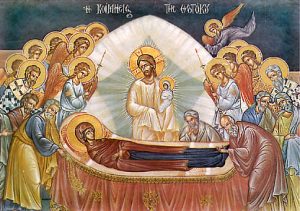 We Byzantine Catholics prepare for the great feast of the Dormition of the Holy Theotokos (Assumption of the BVM) on August 15 by a special fast.
We Byzantine Catholics prepare for the great feast of the Dormition of the Holy Theotokos (Assumption of the BVM) on August 15 by a special fast.
There is the venerable practice of preparing oneself for the Feast, hence some of us observe the Dormition Fast. This fast is one of the four fasting seasons of the Byzantine church year. The spiritual practices are those spoken of in the Sermon on the Mount: prayer, fasting, almsgiving, and forgiveness. Committed Christians do these things all year long; they are not limited to one or another time of the year. During fasting seasons we simply do them to a greater degree.
“Traditionally the Fast begins on August 1 with a special procession with the life-giving cross and a blessing of water. When Constantinople was the capitol of a Christian empire, it was the custom to carry the relic of the Holy Cross throughout the city every day of the Fast.”
In the Pastoral Guide of the Ukrainian Catholic Church in the USA we read:
The Dormition Fast (Spasivka) begins on August 1 and lasts until the eve of the Dormition of the Blessed Virgin Mary (August 14), inclusively.
Art. 474 – General rules governing abstinence:
Meat is to be understood as including not only the flesh but also those parts of warm-blooded animals that cannot be melted down, e.g., the liver, lungs, blood, graves, etc.
Although it is not the authentic practice of the Tradition. the meat of fish and crustaceans may be eaten, as well of those mammals, that live constantly in water, as, e.g., whales.
Dairy Products are to be understood as comprising products derived from mammals and birds, but not regarded as meat, e.g., cheese, lard, butter, milk, and its by-products, eggs, etc.
Fats of plant origin, e.g., those derived from olives, coconuts, seeds of the sunflower and of the pumpkin, may be used.
Voluntary penance, prayers for the intentions of the hierarchs of the Church, Bishop of Rome, the Major Archbishop, the Metropolitan, and the Eparchial Bishop; voluntary offerings to the Church, the seminaries, the Church in Ukraine, self-denial of alcohol, smoking, attendance at entertainment, etc., may be supplementary only with permission of a confessor. Bread and water alone is a good fast.
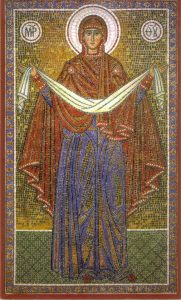 There is only one God, one Creator, one Savior, one Redeemer. Yet this one God has chosen to be friends with his creation. As St. Paul told us, he humbled himself to become a man, like us in every way except sin. There are many ways he could have become a man, but he chose to be born of a woman who in her human nature, accepted completely the will of God, so that through her God could enter into our time and our story. Then, at Cana, it was his mother, a woman, who by her plea, guided God to make wine out of water, telling the stewards, and through them, saying to all of us, “Do whatever he tells you.”
There is only one God, one Creator, one Savior, one Redeemer. Yet this one God has chosen to be friends with his creation. As St. Paul told us, he humbled himself to become a man, like us in every way except sin. There are many ways he could have become a man, but he chose to be born of a woman who in her human nature, accepted completely the will of God, so that through her God could enter into our time and our story. Then, at Cana, it was his mother, a woman, who by her plea, guided God to make wine out of water, telling the stewards, and through them, saying to all of us, “Do whatever he tells you.” 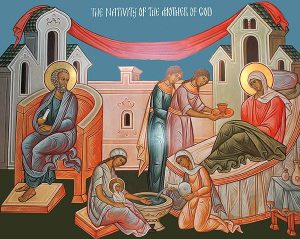 THE REPROACH OF CHILDLESSNESS
THE REPROACH OF CHILDLESSNESS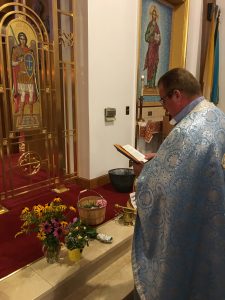 Blessing of Herbs and Flowers on the Feast of the Dormition of the Mother of God –August 15
Blessing of Herbs and Flowers on the Feast of the Dormition of the Mother of God –August 15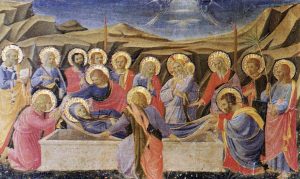 “Come, all you ends of the earth, let us praise the blessed passing of the Mother of God. She delivers her sinless soul into the hands of her Son; through her holy Dormition, the world is given new life.” (Stichera at the Litija)
“Come, all you ends of the earth, let us praise the blessed passing of the Mother of God. She delivers her sinless soul into the hands of her Son; through her holy Dormition, the world is given new life.” (Stichera at the Litija)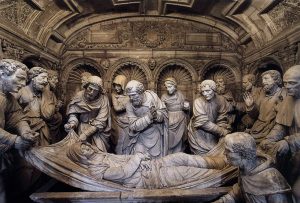 On Wednesday, August 15, Church celebrates feast of The Dormition of Our Holy Lady, The Mother of God and Ever-Virgin Mary (a Holy Day of obligation).
On Wednesday, August 15, Church celebrates feast of The Dormition of Our Holy Lady, The Mother of God and Ever-Virgin Mary (a Holy Day of obligation).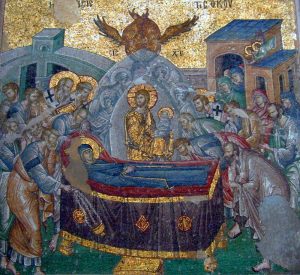 Dance with joy
Dance with joy We Byzantine Catholics prepare for the great feast of the Dormition of the Holy Theotokos (Assumption of the BVM) on August 15 by a special fast.
We Byzantine Catholics prepare for the great feast of the Dormition of the Holy Theotokos (Assumption of the BVM) on August 15 by a special fast.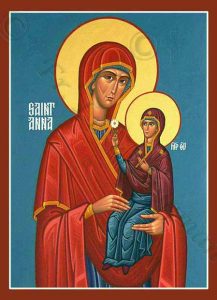
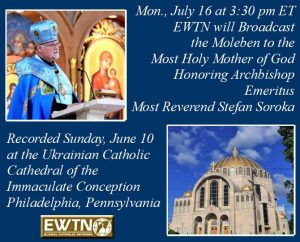
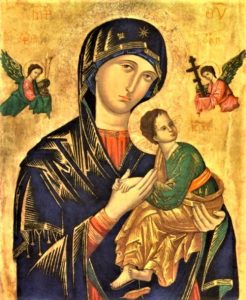 The Head of the UGCC issued a decree on proclamation of the Feast of Our Lady of Perpetual Help
The Head of the UGCC issued a decree on proclamation of the Feast of Our Lady of Perpetual Help